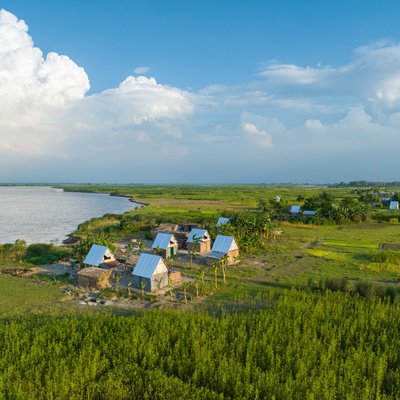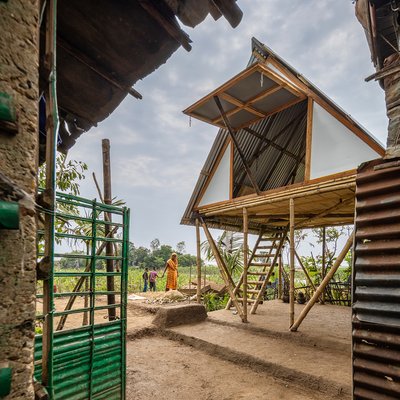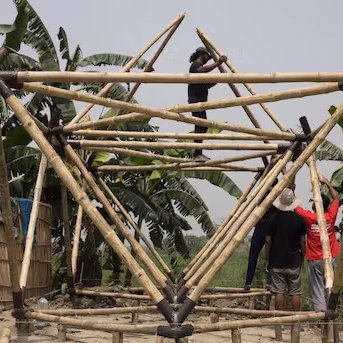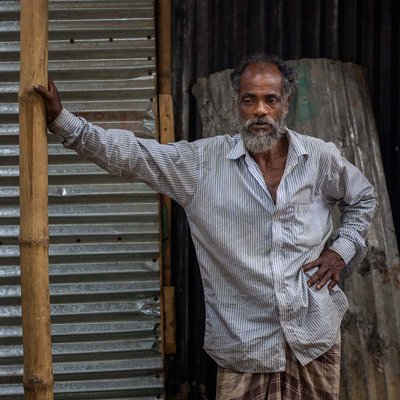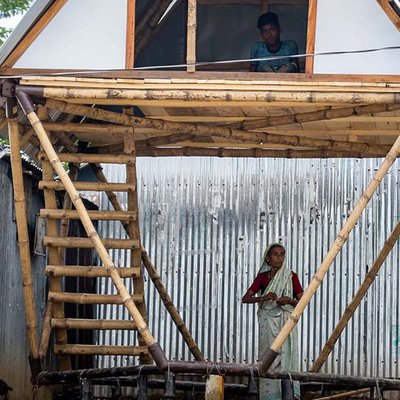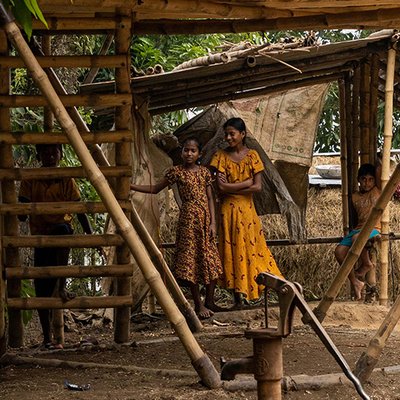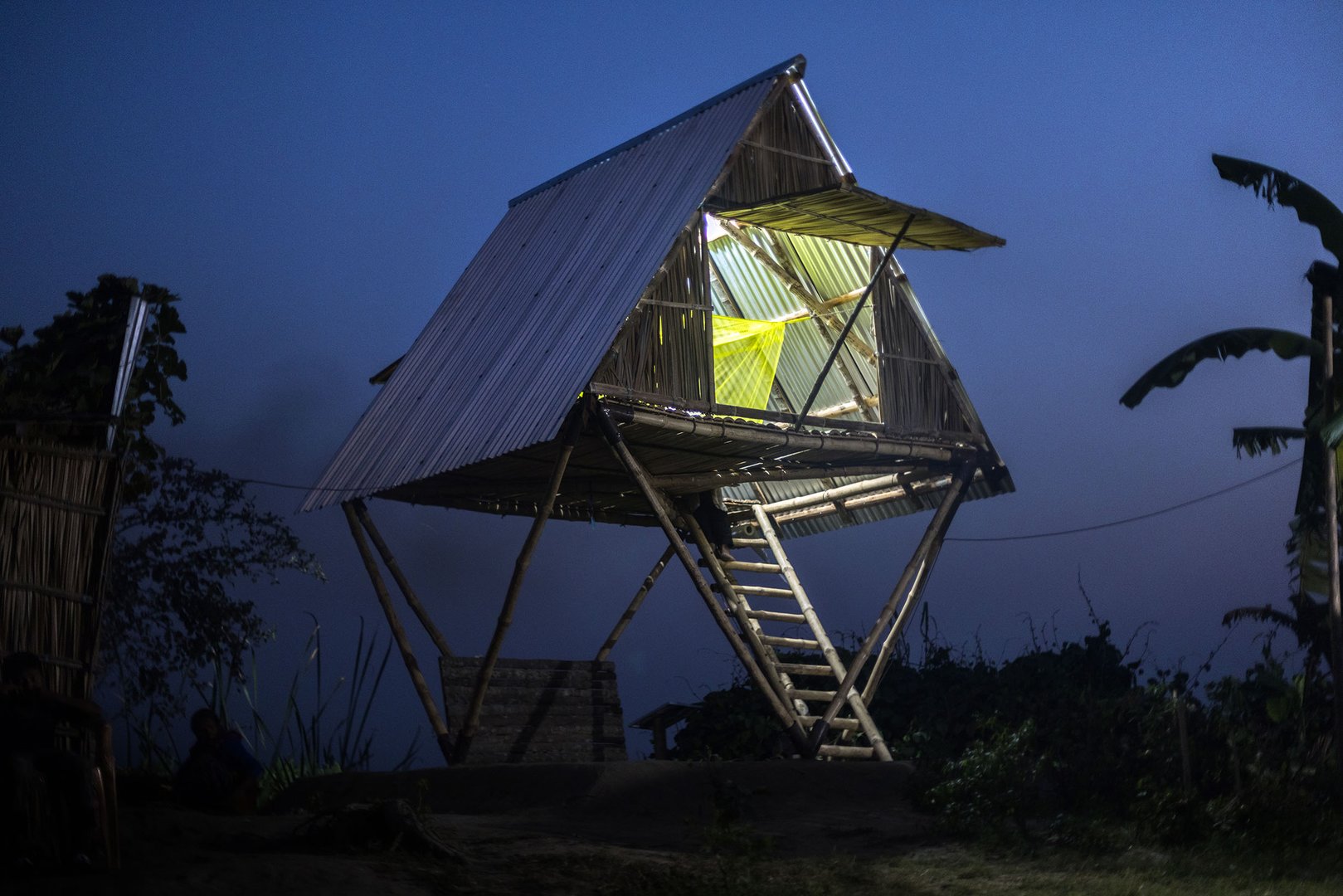
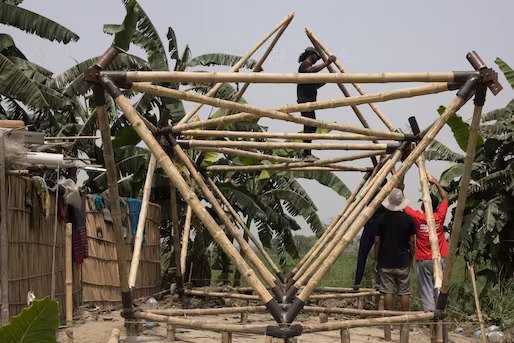
'Tiny house, big impact': Marina Tabassum shares her flat-packed vision with CNN
Past Aga Khan Award winner and 2021 Soane Medalist Marina Tabassum was recently featured in a short CNN profile of her ongoing Khudi Bari project in the coastal region of her native Bangladesh.
The concept, which seeks to deliver mobile two-level residential structures to a largely landless population in the heavily flood-prone area, first came about in October of 2018 and was accelerated by a pandemic downturn that ground several of her eponymous studio’s other ongoing projects to a halt.
Tabassum says the bamboo structures (whose name translates to “tiny home” in Bengali) can be easily disassembled and transported elsewhere, relying on steel joints and metal corner braces for structural strength. The design is split into two levels, with the uppermost elevated about six feet above the ground plane to accommodate up to four people in the event of flooding.
According to MTA: “The architecture mimics traditional vernacular language of the Bengal delta that has long-term association in human psyche thus making it acceptable as a culturally appropriate form.”
Bangladesh is among the world’s preeminent victims of climate change. Its littoral network of chars (of which there are five subdivisions) is home to an estimated 5 million people, all facing enhanced threats from flooding and soil erosion that strips them of their wealth while increasingly making their lives transient and geared toward an agriculture of subsistence.
Tabassum said she, therefore, feels a profound impulse to donate to “more deserving” families in the area with the structures, which reportedly cost around $450 each to construct, through a careful community engagement process.
The studio founded a non-profit arm called F.A.C.E. (or “Foundation for Architecture, Community, Equity”) in order to better distribute the modular 128-square-foot designs throughout the char communities of Chandpur, the refugee center in Cox's Bazar, and in the northern towns of Kurigram and Sunamganj. As CNN reported, a total of 40 structures have been completed by the organization thus far.
“Because of the climate crisis, because of the sea level rise, and all the different unpredictable phenomena that are happening around us, it's important to not create something too permanent,” Tabassum told the network finally. “I don't believe that every building needs to last a hundred years.”
She added: “Architecture of people, where people live, it's always been something which is a constantly evolving process. It never sought permanence.”
More information about the Khudi Bari project, which is being featured as part of this year's Desert X festival outside Palm Springs, can be found here.
Extract from: https://archinect.com/news/article/150345059/tiny-house-big-impact-marina-tabassum-shares-her-flat-packed-vision-with-cnn
More News Like This
